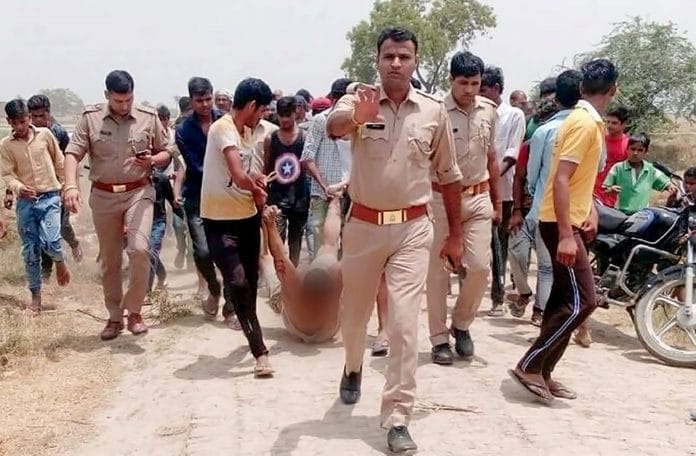New Delhi: A Hapur sessions court Tuesday awarded life imprisonment to all 10 accused in the 2018 mob lynching case of Mohammed Qasim, a 45-year-old Muslim man, in Uttar Pradesh’s Hapur district.
The court verdict comes six years after cow vigilantes surrounded and killed Qasim and left his companion, 65-year-old Samaydeen, severely injured. The trial suffered many delays due to judges getting transferred and saw four rounds of arguments in total.
The court convicted the 10 accused under Indian Penal Code sections 302 (murder), 307 (attempt to murder), 149 (unlawful assembly), and 153A (promoting enmity between different groups on the grounds of religion, race, place of birth).
The court also slapped fine of Rs 58,000 each on the accused.
After the verdict, Qasim’s brother Mohammed Saleem told ThePrint, “We do not want revenge and requested the court not to award a death sentence to the perpetrators. We only want justice and are very happy with the verdict.”
“It took over six years for the judgment, but justice has now been served. This should set an example,” added Saleem, who sells fruits for a living.
Soutik Banerjee, one of the counsels appearing for Qasim and Samaydeen, said, “The victims (Samaydeen and Qasim’s family) said in court that the accused not be awarded the death penalty and that they only want justice.”
Investigation under top court’s directions
Qasim was assaulted for over an hour with screwdrivers and sickles on 18 June 2018 before he died. Samaydeen barely managed to escape the murderous assault.
At the time, three policemen were suspended after a photo of them escorting the perpetrators as they dragged Qasim went viral on social media platforms.
The local police initially filed an FIR, suggesting the crime stemmed from road rage and was not a mob lynching case.
Only after the Supreme Court issued directions did the police record the statements of the witnesses. Samaydeen’s statement was recorded in front of the magistrate.
At the time, the apex court also asked the inspector general of police (Meerut range) to submit a report on the case.
In September 2018, the top court, while recognising Qasim’s killing as a mob lynching case, asked police to carry out their investigation under the guidelines issued in the Tehseen S. Poonawalla vs Union of India case.
Finally, police filed the chargesheet against the 10 accused on 4 November 2018.
Earlier, in February, the Hapur court heard the final round of arguments in the trial. The rebuttal arguments followed. The court decided and pronounced both the conviction of the accused and their quantum of punishment on 12 March.
Meanwhile, Qasim’s children have grown up. One of his seven daughters has got married. “We are trying to move on. This judgment has brought peace for all of us,” Saleem said.
(Edited by Madhurita Goswami)






